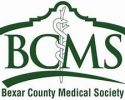Physician burnout is a growing problem in today’s healthcare industry. More and more providers (an estimated 47% in 2021) report physical and mental exhaustion from what many believe to be mounting pressures brought on by excessive workloads, the depersonalization of care, and micromanagement. For hospitalists and those working in emergency medicine, the percentage is even higher (62%). To combat physician burnout, many organizations are turning to hospital scribes. Take a look at how hiring a hospital scribe can help reduce physician burnout:
A Hospital Scribe Alleviates Documentation Burden
Hospitals are busy places; most doctors working in a hospital setting see approximately 17 patients per shift. That’s a lot of patients, and because federal law mandates that all patient records be available digitally, that’s a lot of information to be documented and recorded into an electronic health record (EHR) system.
A hospital scribe’s main task is to help doctors transcribe information into EHRs in real-time. In addition to taking notes regarding patient encounters, medical scribes enter data relating to follow-up orders, referrals, test results, prescriptions, billing, and more, allowing hospital doctors to spend less time on clerical work and more time treating patients and managing their care. They remove the burden of manual data entry from the physician, which effectively reduces up to 40% of the doctor’s time.
A Hospital Scribe Serves as a Liaison with Care Team
A hospital scribe also acts as a liaison between a physician and the rest of the patient’s care team, allowing physicians to return their focus to each of their patients. Instead of needing to research prior patient encounters before a new one or having to follow up patient encounters with other clerical tasks, doctors can rely on hospital scribes to interact with nurses, receptionists, therapists, pharmacists, and other members of the care team on their behalf. The hospital scribe collaborates with the rest of the care team both before and after a patient encounter, providing the physician with only the details he or she needs to know and taking care of all necessary administrative duties so that clinical workflow is accelerated and actual care is not only more accurate but more highly personalized.
A Hospital Scribe Helps Monitor and Ensure Regulatory Compliance
Finally, hospital scribes help physicians maximize billing codes, monitor mandatory work hour maximums (especially for programs with interns and residents), and comply with the multiple standards as set forth by federal law, insurance companies, and accountable care organizations (ACOs), and other regulatory bodies. In short, they return autonomy to physicians by taking charge of administrative compliance with many of the directives governing how and when doctors fill out forms, enabling doctors to feel less pressured by specific rules and freeing them from the perception of being micromanaged or overly supervised.
Reduce Physician Burnout with Provider’s Choice Scribe Services
Hospital scribes help physicians document patient encounters. They work as part of a core team on the doctor’s behalf and take on many of the clerical duties that keep doctors away from their patients and the job they originally envisioned. With the help of a hospital scribe, a doctor has less stress and more time to devote to actual patient care. Please contact Provider’s Choice Scribe Services to learn how hiring a hospital scribe can help care providers in your own organization achieve higher job satisfaction and, thus, reduce their susceptibility to physician burnout.



